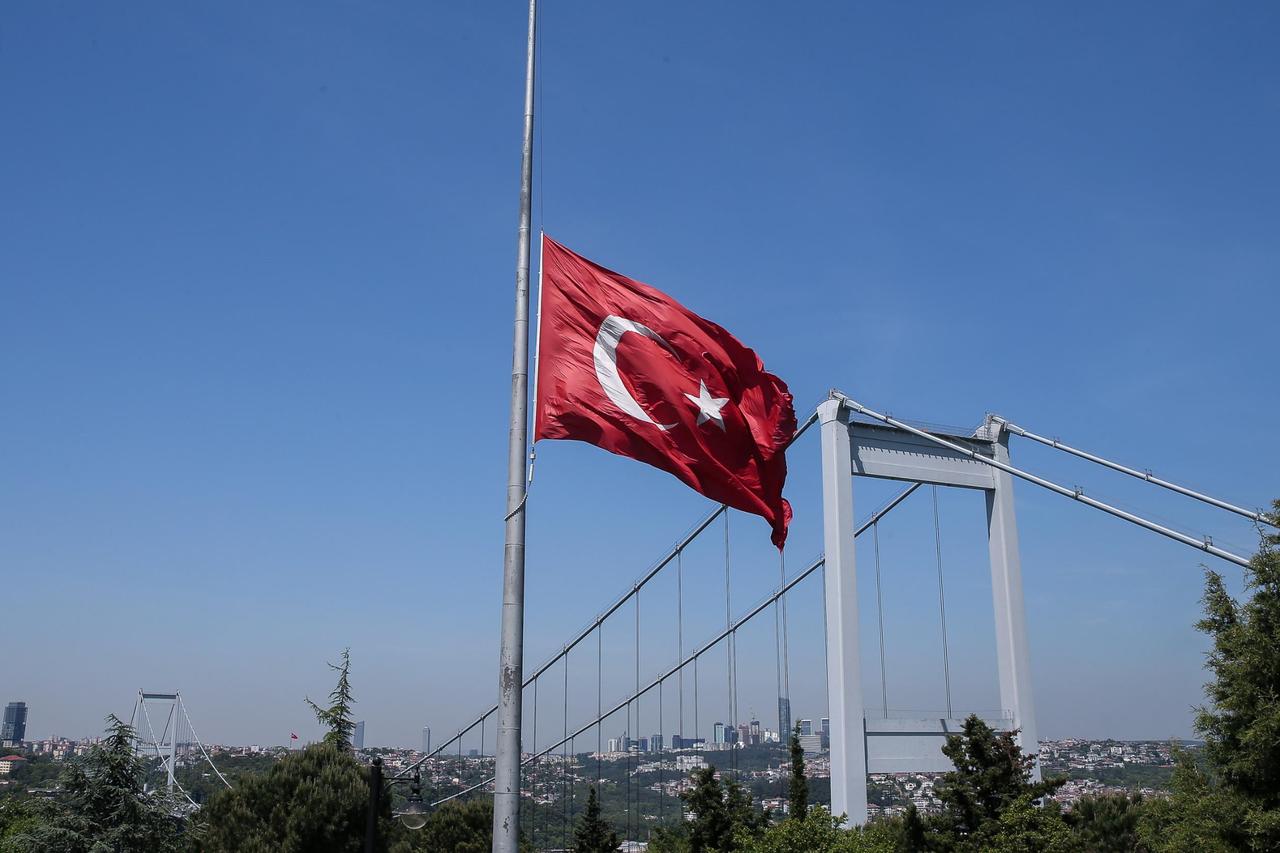
Türkiye’s Defense Ministry issued a detailed statement on Thursday addressing speculation surrounding the Nov. 11 crash of a C-130 military cargo aircraft near the Azerbaijan–Georgia border. All 20 personnel on board lost their lives, and officials stressed that the cause of the incident will be determined only after the accident investigation team completes its work.
As condolences poured in from across the country, the tragedy sparked an intense public debate: Why was no national mourning declared?
For many, the absence of an official mourning period seemed puzzling in the face of such loss. To comprehend the reason behind the decision, however, it is necessary to understand the mentality and concept of Islamic "martyrdom" and be aware of the country’s traditions.
In Türkiye, the concept of national mourning has historically applied almost exclusively to civilian deaths. A close look at the list of officially declared national mourning days since the founding of the republic shows that none were tied to military casualties, regardless of scale.
This practice is rooted in a long-standing religious and cultural understanding of martyrdom. In Islamic tradition, "martyrdom" is regarded as the highest spiritual rank—an honor that places the fallen in a sacred category distinct from civilian victims of disaster. Religious texts emphasize that those who die "in the path of God" are not considered dead but alive in the presence of their Creator.
As a result, while families and communities grieve deeply, the state does not declare national mourning for military martyrs. Instead, funerals often reflect both sorrow and pride, expressed in phrases like “Vatan sag olsun” (“May the nation endure”) and parents describing their loss as an honor despite immense pain.
The republic’s approach continues an older tradition. The Ottoman Empire had no institutionalized mourning culture for mass tragedies or military losses, and early republican history followed the same pattern. Even the devastating 1939 Erzincan earthquake, which killed more than 40,000 people, did not lead to an official mourning declaration.
Instead, individual initiatives emerged organically. In the aftermath of the earthquake, cinema and entertainment venue owners in Istanbul voluntarily suspended shows and festivities for a day. There was no state directive.
Major military disasters across decades further illustrate the pattern. The 1953 Dumlupinar submarine tragedy, in which 81 naval personnel died, did not result in national mourning.
The same was true after the 1992 avalanche in Sirnak that claimed the lives of dozens of soldiers and village guards. Even high-casualty attacks, such as the PKK terrorist group’s killing of 33 unarmed soldiers in the city of Bingol, did not prompt a mourning declaration.
Civilian deaths, on the other hand, have motivated official mourning, as seen after the deaths of global leaders such as Iran’s Ali Khameini or Saudi Arabia's King Fahd, and following various humanitarian and diplomatic aims.
Although national mourning is not declared for military "martyrs," Türkiye does mark such losses through religious and communal practices. Mosques recite prayers, Quranic readings are completed, and announcements echo from minarets.
These observances carry deep cultural weight and are consistent with religious tradition as funeral prayers across the country are performed in absentia for the martyrs.
Official protocols surrounding the national flag also shape how mourning is recognized. According to the Turkish Flag Law, only the president can order flags to be flown at half-mast. No governor, mayor or local authority has the legal authority to make such a decision. Attempts by individual municipalities to lower flags independently are considered unlawful, regardless of intent.
This framework reinforces the consistency of state practice: while grief is deeply acknowledged, the formal mechanisms of national mourning remain tied to specific precedents and legal boundaries.
This week’s debates unfolded amid a politically charged atmosphere, with some opposition figures urging the government to declare national mourning.
Supporters argued that the scale of loss warranted an exceptional step, while critics noted that no such precedent exists in either republican or Ottoman history.
The confusion also reflects limited public awareness of how Türkiye traditionally distinguishes between military "martyrdom" and civilian tragedy. Many citizens, along with journalists and political figures, have questioned the absence of official mourning simply because the historical context is not widely known.
Yet the tradition of not announcing such periods for military martyrs is long-standing, rooted in religious principles and a century of republican precedent.
Therefore, while hearts mourn in Türkiye, the state and military remain resolute, denying enemies any reason to rejoice.